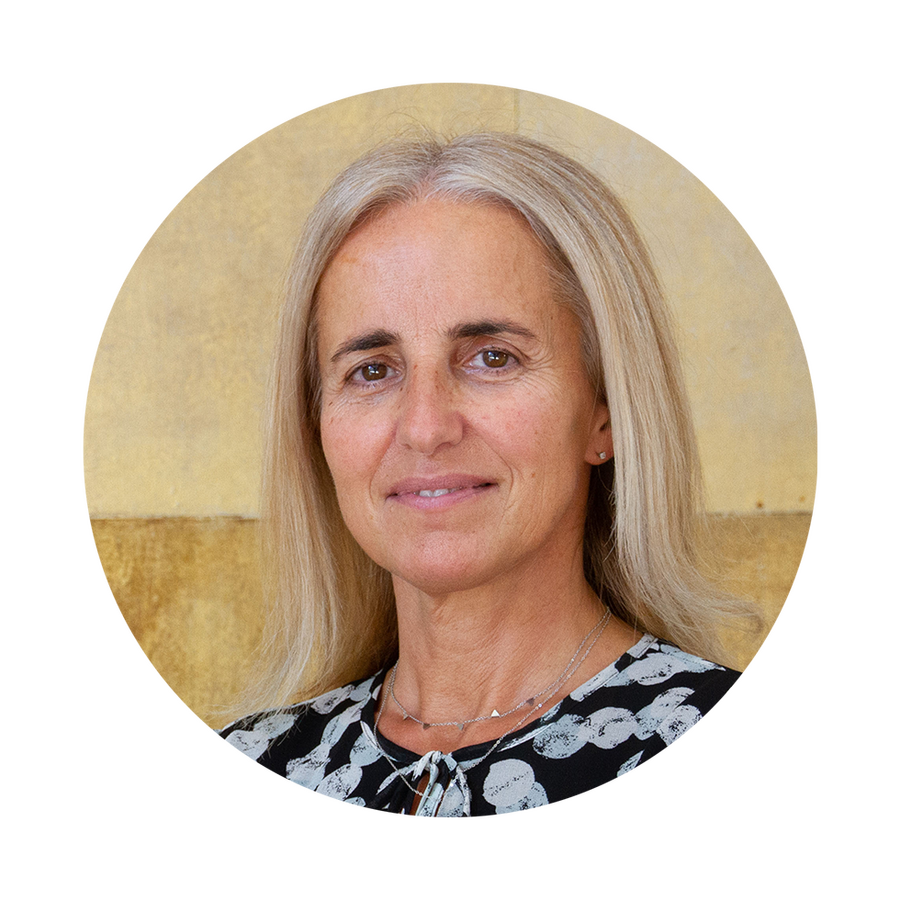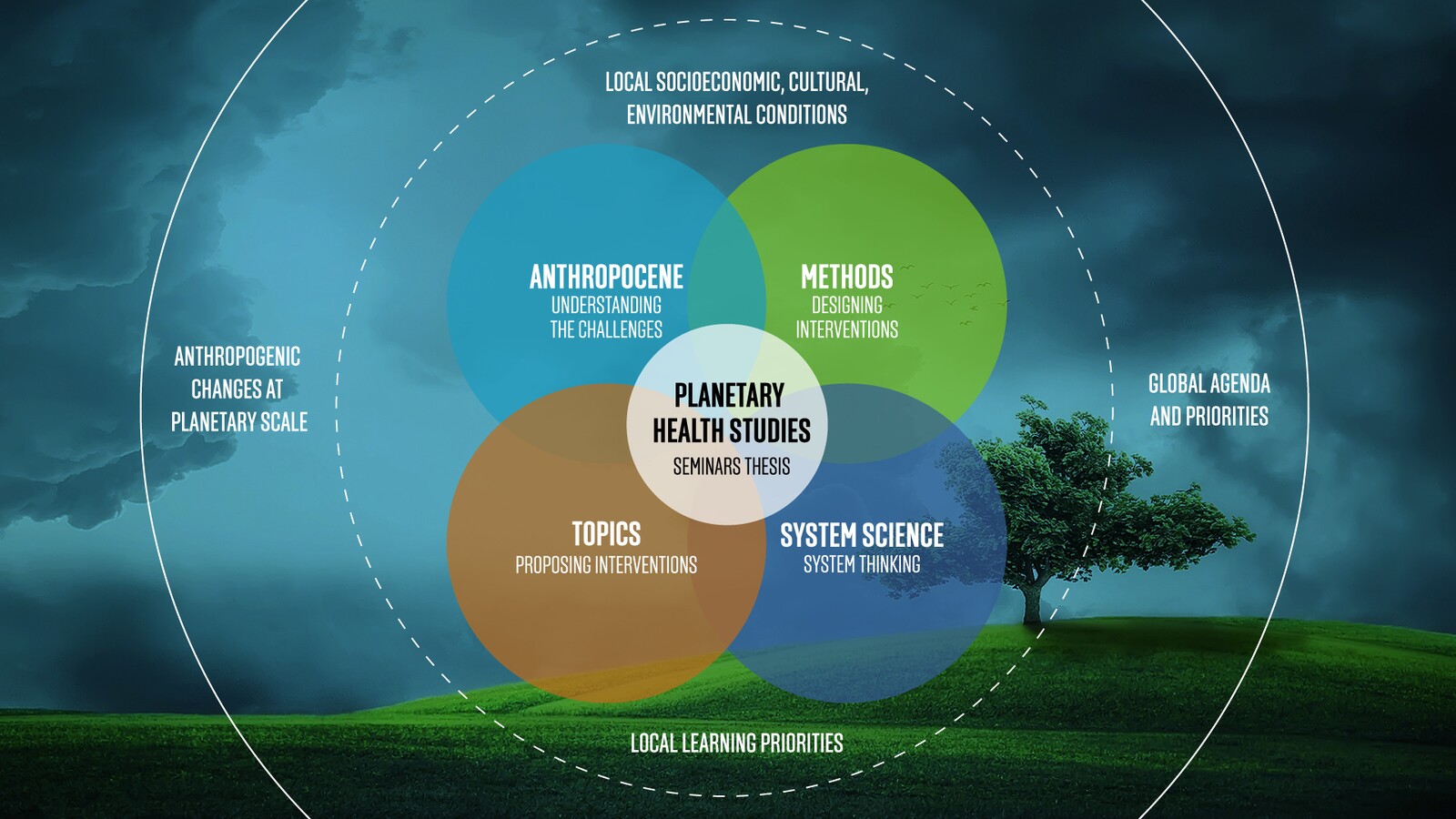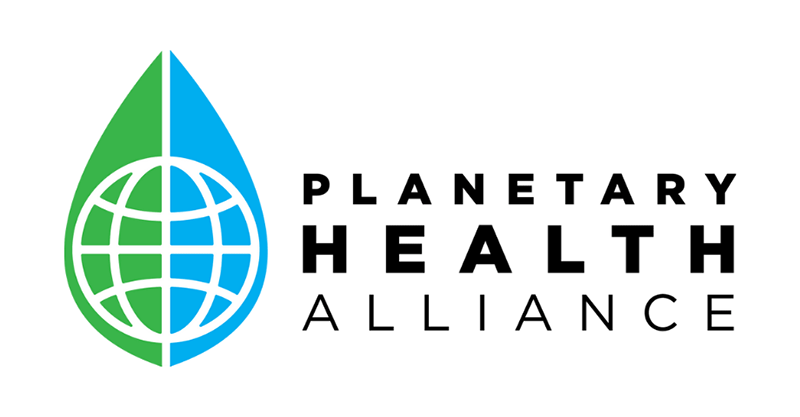WHY CHOOSE ULISBOA PLANETARY HEALTH?
TOP-RANKED EXCELLENCE
Study at one of Europe’s leading universities.
GLOBAL PERSPECTIVE
Learn in English and explore diverse international opportunities.
PRACTICAL LERANING
Engage with real-world data to develop sought-after skills.
RENOWNED FACULTY
Gain insights from experts in Health, Environment, and Socio-economic Sciences.
CAREER-ORIENTED
Benefit from personalized career guidance tailored to your goals.
Do not miss this chance to take the next step towards unlocking your full potential!
Apply now to boost your admission chances and maximize your scholarship opportunities!
The Doctoral Degree in Planetary Health Studies at the University of Lisbon addresses critical global challenges at the intersection of health, environmental, social, and political sciences. Through a holistic approach, the programme equips students to tackle complex issues that cross ecological and societal boundaries.
Focused on action and transformation, the programme identifies and addresses problems at local, regional, and planetary levels—core to the concept of planetary health. Students are encouraged to develop, test, and refine solutions, applying them in laboratory or simulation environments through collaborative teamwork. This transformative, solution-oriented approach sets the programme apart, with a curriculum designed to integrate diverse knowledge streams in addressing planetary health challenges. Doctoral thesis topics are framed as real-world problems in planetary health, often identified in collaboration with a range of stakeholders (State laboratories, hospitals, museums, companies, NGOs) who may also be involved in employing its graduates.
Presentation

"Discussions about planetary health often lack action. By creating the Doctoral Programme in Planetary Health Studies, the 18 Schools of the University of Lisbon show a strong commitment to driving change and fostering interdisciplinary collaboration collaboration for sustainable impact. This programme is a step towards innovation and concrete action for a healthier planet. We invite you to join us in this effort."
Cecília Rodrigues, Programme Coordinator
OBJECTIVES
Advancing Solutions for Planetary Health
The programme aims to create leaders capable of generating actionable evidence and crafting sustainable public policies. Graduates will drive transformative change to confront the multifaceted health challenges facing the planet.
FOCUS
Holistic, Cross-Disciplinary Perspective
The programme emphasizes a multi-dimensional approach, integrating health sciences with environmental and social disciplines to understand and address planetary health challenges.
IMPACT MODEL
Solutions-Oriented and Collaborative
Focused on problem-solving, the programme supports students in co-creating and testing solutions at local and global scales, fostering innovation through intersectoral collaboration and multi stakeholder engagement.
The programme integrates perspectives and methodologies for the global application of concepts, recognising non-linear connections between systems. Skills are developed for operational decisions based on evidence, promoting informed transformative interventions.
TARGET AUDIENCE
Aspiring Global Health Experts
Ideal for professionals and scholars in health, environmental sciences, and social policy, this programme attracts those driven to contribute solutions to the world's most urgent planetary health issues.
Flexible and Specialized Curriculum
Students engage in courses, semminars and internships, and select from six specializations—Climate Change and Health, Global Health, Health in Extreme Environment, Policies and Governance in Planetary Health, Tropical Health, and Urban Health, —to tailor their expertise.
In the first semester, students complete four core courses that cover the health, environmental, socio-economic, and political dimensions of Planetary Health. Through case studies, these courses cultivate a critical perspective and expose students to diverse local or global contexts. Two optional courses offer any topic and transversal skills to align with individual interests. By the end of the first year, students define their doctoral specialization, setting their unique academic path. Seminars and internships throughout the four years of the Programme foster both academic and professional growth, encouraging collaborative learning, constructive feedback, network building, and exposure to new ideas.
Active teaching methodologies are employed to enhance critical thinking, problem-solving skills, teamwork, and adaptability.
STUDY PLAN AND SPECIALTIES

SPECIALITIES
This specialty focuses on the study of the impact of climate change on planetary health, investigating its effects on living conditions, the spread of disease and global well-being, with the aim of developing mitigation and adaptation strategies. It focuses on climatic events and their effects on human physical and mental health, environmental pollutants and other forms of environmental degradation, deforestation and modification of natural terrestrial and marine ecosystems, habitat loss and fragmentation, biodiversity loss and species extinction, the risks posed by current food production systems, farming practices, fisheries and aquaculture, and their impact on global health.
Global Health focuses on the analysis of health patterns and determinants, investigating epidemiological patterns and socio-economic and environmental factors that help to understand the interconnections between diseases, populations and health systems on a global scale. It is therefore part of the One Health concept, which recognizes that human and animal health are closely linked and interdependent with environmental health. The focus will be on the Human-Animal-Environment interdependence, in the multidirectional analysis of causes, effects and consequences on global health. It emphasizes the epidemiological risks in the bidirectional transmission of disease between Human-Animal and the role of natural systems as a factor in the propagation of vectors and the maintenance of reservoirs of infectious agents, or of the environment as a predisposing element to Human and Animal disease, also considering the risks to food safety.
This specialty focuses on the study of extreme environments, such as polar regions (Arctic and Antarctic), deserts, high altitudes, and areas subject to extreme climatic conditions. It seeks to understand how human communities, flora, fauna and ecosystems in these environments adapt, respond and interact with unique challenges, such as extreme temperatures, resource scarcity and extreme adverse conditions. It also seeks to identify emerging risks to global health, namely through exposure to new potentially pathogenic agents. The aim is to understand health in these extreme conditions and develop strategies for sustainable adaptation. The strengthening of ULisboa's training offer in extreme environments is in line with its institutional mission, as demonstrated by the creation of the College of Polar Sciences and Extreme Environments.
Governance is a critical point in the integration of social, economic and environmental policies, but also in the creation, synthesis and application of interdisciplinary knowledge that contributes to strengthening planetary health. Thus, this specialty focuses on the multi-level analysis of the political and governance dimensions of planetary health, investigating how international, national and local policies contribute to or mitigate global health challenges, in light of geopolitical and geo-economic dynamics. This analysis covers topics such as sustainable development policies, environmental regulations and the role of governance structures, technology and innovation in addressing environmental and global health issues.
The tropics are home to 40% of the world's population, including more than half of those under the age of 15. The tropics are also areas rich in biodiversity, home to around 80% of the planet's terrestrial species, which are vital for regulating the energy, carbon and water balance and, ultimately, the climate on a global scale. The tropics (oceans and rainforests) also provide natural resources of great environmental, economic, cultural and symbolic value, as well as unique health promotion challenges that impact on a global scale. This specialty seeks to highlight the challenges and needs of tropical regions, emphasizing their centrality to major issues related to Global Health and sustainable development. The reinforcement of the training offer in tropical regions is aligned with ULisboa mission, through the creation of the Tropical College.
A large part of the population lives in cities. They are the engines of economic activity and are responsible for around three quarters of global greenhouse gas emissions. Estimates indicate that, by 2050, around 70% of the population will live in urban environments. Therefore, this specialty focuses on urban systems, analyzing the interaction between global risks, sustainable urban development, environmental health and the resilience of cities, seeking to understand how factors such as urban planning, mobility, housing, water and air quality, natural resources or social inequalities impact the sustainability and adaptive capacity of urban areas, with a view to developing strategies to promote more sustainable and resilient cities, but also fairer and less unequal ones.
FACULTY MEMBERS
Renowned Interdisciplinary Experts
The programme involves the 18 Schools of the University of Lisbon and the faculty includes respected experts from various fields, committed to fostering an academic environment conducive to high quality and impactful research. Teaching satff and thesis supersisors are from different scientific disciplines and sectors.
Coordinator
Cecília Rodrigues
Scientific Comittee
Ana Abreu, Faculty of Medicine
Ana Ribeiro, School of Agriculture
Andrea Valente, School of Social and Political Sciences
Carla Amado Gomes, Faculty of Law
Cecília Rodrigues, Faculty of Pharmacy
Cristiana Bastos, Institute of Social Sciences
Cristina Branquinho, Faculty of Sciences
Francisco Rebelo, Lisbon School of Architecture
Gonçalo Vieira, Institute of Geography and Spatial Planning
Luís Lopes da Costa, Faculty of Veterinary Medicine
Luís Tinoca, Institute of Education
Maria Cristina Bettencourt Neves, Faculty of Dental Medicine
Filomena Carnide, Faculty of Human Kinetics
Maria José Chambel, Faculty of Psychology
Maria Casal, School of Arts and Humanities
Mónica Oliveira, IST Técnico Lisboa
Pedro Almeida, Faculty of Fine Arts
Sofia Bento, ISEG - Lisbon School of Economics & Management
Faculdade de Arquitetura
Carla Sofia Morgado
Filipe González Migães de Campos
Francisco Rebelo
Gianni Montagna
Gonçalo Falcão
Hugo Farias
Faculdade de Belas-Artes
Cristóvão Pereira
Pedro Duarte de Almeida
Rogério Taveira
Sofia Leal Rodrigues
Suzana Parreira
Victor Almeida
Faculdade de Ciências
Cristina Branquinho
Cristina Máguas
Lisete Sousa
Manuel Carmo Gomes
Margarida Amaral
Marília Antunes
Mónica Sofia Cunha
Raquel Conceição
Ricardo Dias
Ricardo Trigo
Romana Lopes Almeida
Tiago Capela Lourenço
Tiago Guerreiro
Faculdade de Direito
Carla Amado Gomes
Faculdade de Farmácia
Maria Beatriz Lima
Afonso Cavaco
João Gonçalves
Maria da Graça Soveral
Maria do Rosário Bronze
Sofia de Oliveira Martins
Vasco Branco
Faculdade de Letras
Amália Mendes
Augusto Nascimento
Cecília Beecher Martins
João Pedro Cunha Ribeiro
José Damião Rodrigues
Luís Filipe Barreto
Margarida Vale de Gato
Maria Alexandre Lousada
Maria João Freitas
Maria Casal
Sónia Frota
Faculdade de Medicina
Ana Abreu
Emília Valadas
Fausto Pinto
Helena Cortez Pinto
Joaquim Ferreira
Mário Ramirez
Miguel Prudêncio
Faculdade de Medicina Dentária
António Ginjeira
António Mata
Henrique Luís
Joana Marques
João Aquino
Maria Cristina Bettencourt Neves
Mário Bernardo
Sofia Arantes e Oliveira
Sónia Mendes
Victor Assunção
Faculdade de Medicina Veterinária
Luís Lopes da Costa
Isabel Fonseca
José Alexandre Leitão
Maria João Fraqueza
Rui Bessa Ciências
Virgilio da Silva Almeida
Faculdade de Motricidade Humana
António Veloso
Celeste Simões
Duarte Araújo
Filomena Carnide
Maria de Fátima Baptista
Paulo Alexandre Silva Armada da Silva
Faculdade de Psicologia
Telmo Mourinho Baptista
Alexandra Marques Pinto
Isabel Narciso
Luísa Barros
Maria José Chambel
Miguel Barbosa
Instituto de Ciências Sociais
Luísa Schmidt
Cristiana Bastos
João Mourato
Lavínia Pereira
Lea Heyne
Luís de Sousa
Marta Rosales
Monica Truninger
Olívia Bina
Pedro Figueiredo Neto
Ricardo Roque
Roberto Falanga
Rosário Oliveira
Verónica Policarpo
Instituto de Educação
Luís Tinoca
Carmen Cavaco
Carolina Carvalho
Instituto de Geografia e Ordenamento do Território
António Lopes
César Capinha
Eduarda Marques da Costa
Gonçalo Vieira
Marcelo Fragoso
Paulo Morgado
Sandra Oliveira
Instituto Superior de Agronomia
Ana Ribeiro
André Almeida
Cláudia Marques-dos-Santos
José Miguel Cardoso Pereira
Luís Goulão
Luis Mira da Silva
Rui Figueira
Instituto Superior de Ciências Sociais e Políticas
Andrea Valente
Carla Pinto
Fátima Amante
Lara Tavares
Paulo Castro Seixas
Sandra Balão
Instituto Superior de Economia e Gestão
Aida Tavares
Idalina Sardinha
Marta Varanda
Sara Falcão Casaca
Sofia Bento
Instituto Superior Técnico
Ana Ferreira
Filipa Ferreira
João Canário
Maria João Pereira
Nuno Nunes
Mónica Oliveira
Patrícia Gonçalves
Paulo Ferrão
Sandra Cabo Verde
Susana Vinga
Teresa Melo
Tiago Domingos
Zita Martins
Rectory
Cecília Rodrigues
Opening Soon
Stay tuned for the upcoming 2025/2026 application period for this unique opportunity to be at the forefront of planetary health research and innovation.
Do you want to be notified about future information?
APPLICATIONS
Regulations and Official Documents
Edital de Candidatura (brevemente disponível)
Regulamento (brevemente disponível)
Dispatch from the Scientific Committee
Despacho de criação do doutoramento (brevemente disponível)
Protocolo de Cooperação Pedagógica, Científica e Técnica (brevemente disponível)
Accreditation by A3ES
Process number A3ES NCE/24/2400062
Decision date: 2024/10/15
Period: 6 anos
Accreditation Process






